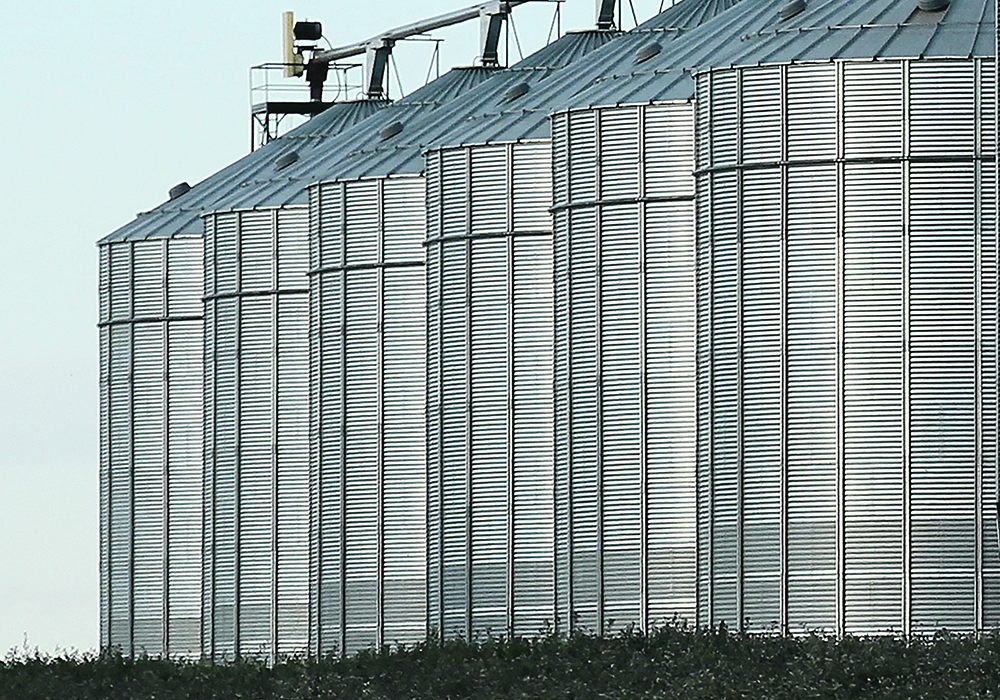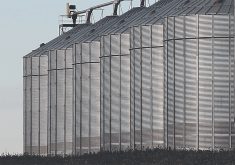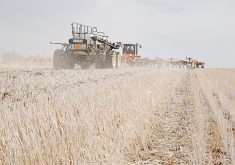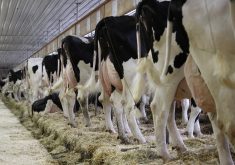Farm cash applications have increased year over year despite the lower interest exemption, program administrators say
Glacier FarmMedia – This year’s federal Advance Payments Program began with a reduction in the interest-free portion of the loan, but it has been humming along since its April 1 launch.
As of June 10, the Canadian Canola Growers Association, the largest administrator of the program with about 95 per cent of APP dollars loaned in Western Canada each year, had issued more than 5,300 advances to producers.
“We typically do between 10,000 and 11,000 advances a year,” said Dave Gallant, vice-president, finance and APP operations for CCGA. Total amount loaned was on course to reach $1 billion.
Read Also

Phosphate prices to remain high
Phosphate prices are expected to remain elevated, according to Mosaic’s president.
Alberta Grains, which administers the APP under the FarmCash banner, had approved 100 producer applications from the four western provinces for a total of $20 million as of the middle of last month.
The APP is a federal loan guarantee program offering farmers low-cost cash advances that can be applied to a broad range of uses, including cash flow. Farmers can access up to $1 million in total advances per year based on up to 50 per cent of the anticipated market value of the eligible commodities they will either produce or already have in storage.
The anticipated market value rates are set by Agriculture and Agri-Food Canada. Loan repayments are made as recipients sell the products they have put up for security. Most producers have up to 18 months (24 months for cattle and bison) to fully repay the loan. A full list of eligible products, as well as administrators, is available on the AAFC website under Advance Payments.
Perhaps the program’s biggest draw is the interest-free portion of the loan. This year it’s been set at the first $250,000, down from $350,000 in 2023. In the past this exemption has usually been limited to the first $100,000 and that’s the sum the federal government sought to reimpose in 2024.
“For the 2022 program, the agriculture minister at that time (Marie-Claude Bibeau) changed the program to $250,000 interest-free to help farmers deal with the fallout of COVID and the increasing interest costs,” said Gallant. “And when she made that change, she made the change for two years and had always maintained for the 2024 program it would go back to $100,000 interest-free.”
However, the exemption was increased to $350,000 in 2023. When the government announced it would dial back the exemption to $100,000 for 2024, it faced backlash from ag groups such as the Ontario Federation of Agriculture as well as opposition ag critics.
The feds struck a balance that would set it back to the 2022 rate just in time for the beginning of the APP season.
Despite the lower interest-free exemption, Gallant said the number of applications the CCGA has received so far has increased by about 2.5 per cent from this time last year, though the loans themselves are generally smaller.
“The dollar value is a little bit lower; it’s down about three per cent. But remember, last year the interest-free was $350,000. This year, it’s $250,000.
“So we’re seeing slightly smaller advances being issued relative to last year at this time and that would explain the dollar differential. Plus the advance rates went down this year for some of the products.”
Gallant said the Bank of Canada’s reduction in its key interest rate to 4.75 per cent (or 25 basis points) on June 5 would not place producers who took out loans prior to that date at a disadvantage.
For example, in the case of the CCGA, its prime interest rate on loans — like many of the 27 APP administrators including Alberta Grains — is set to prime minus a quarter per cent. That means anyone who had interest-bearing loans under the program from April 1 to June 4 will pay 7.2 per cent minus a quarter per cent for that period.
Starting June 5, those same borrowers will pay the adjusted rate of 6.95 per cent minus a quarter per cent from that point forward or until the prime rate changes, said Gallant.
“Whenever prime changes in the program, up or down, once it becomes effective, farmers see the same change in their overall interest rate,” he said.
“In 2022, when rates were going up, farmers would have to pay more at each effective date. Now that the rates have started to come down, one would expect that the rates will continue to get cheaper as the Bank of Canada cuts the primary interest rate.”
Zahida Thakur, manager of the FarmCash program, corroborated Gallant’s estimates in an email.
“We do not anticipate the interest rate reduction to have an impact on the program,” she wrote. “The cost of the loans for the producer are based on the prime rate so there would be a 0.25 per cent rate reduction to the cost of the loan.
“Producers who took out a loan earlier will receive the reduction to their loan cost effective the date of the change.”
The most important thing for farmers thinking of applying for an APP loan, said Gallant, is that they will always pay less than the prime rate of interest, which automatically gives it an advantage over a bank loan.
“What we try to tell farmers is they need to go and look at what they’re paying at their bank. Most farmers are looking at prime plus half or more,” Gallant said. “So that’s when you need to do the math based on your own personal rates to say this is what it could save me.”
















